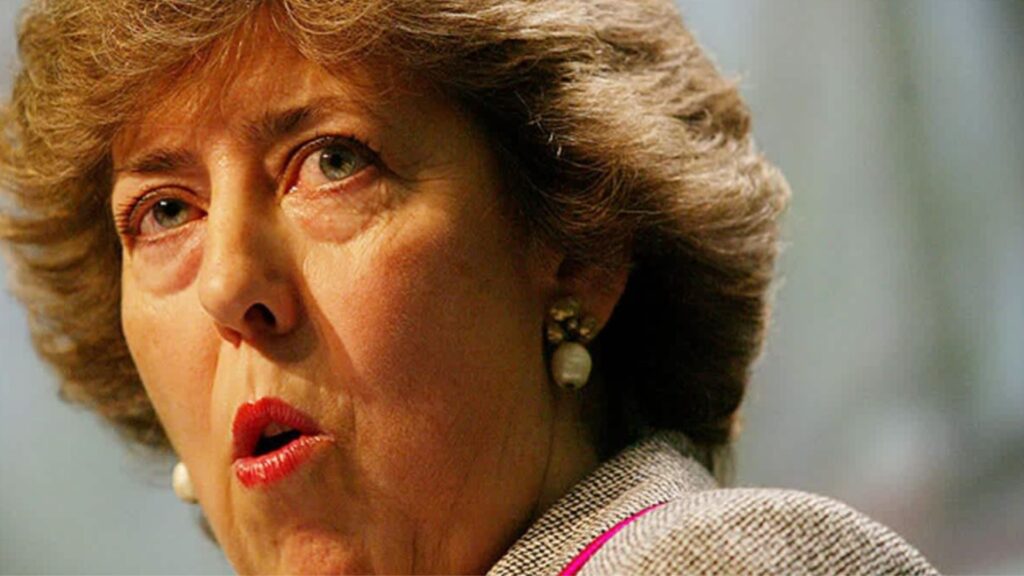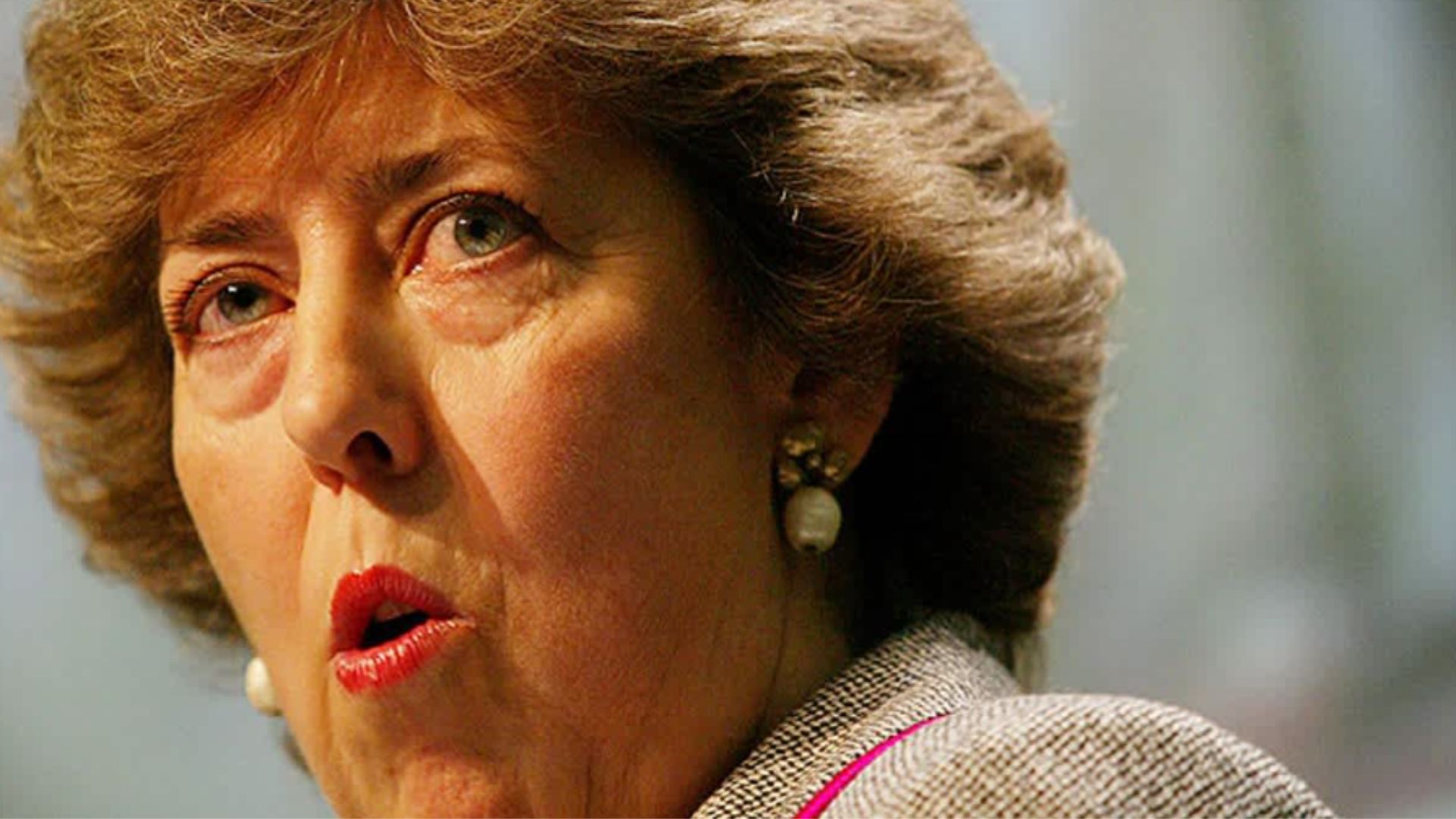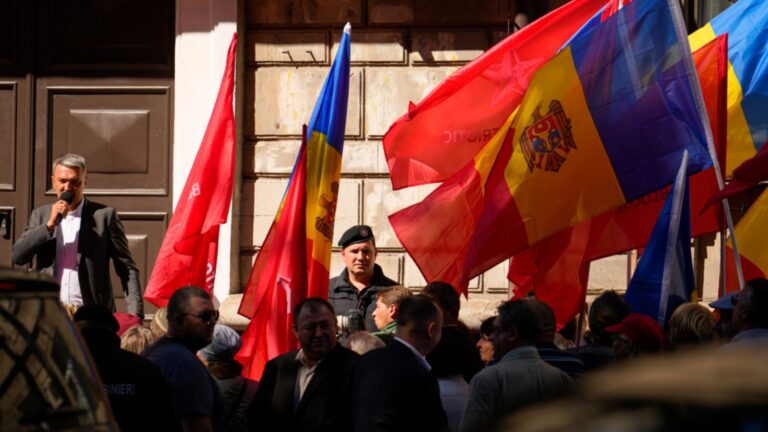
Former MI5 Director General Baroness Eliza Manningham-Buller delivered a stark warning this week that the United Kingdom may already be at war with Russia, marking one of the most direct assessments to date from a senior British intelligence figure about the state of relations between London and Moscow.
Speaking on the Lord Speaker’s Corner podcast, Baroness Manningham-Buller said she was inclined to agree with foreign policy expert Fiona Hill, who has argued that Russia is already waging war against Britain through “poisonings, assassinations, sabotage operations, all kinds of cyber attacks and influence operations”.
“Fiona Hill may be right in saying we’re already at war with Russia,” Manningham-Buller stated, describing it as “a different sort of war, but the hostility, the cyber attacks, the physical attacks, intelligence work is extensive”.
Escalating Shadow Campaign
The former MI5 chief’s comments come as European intelligence agencies report a dramatic surge in Russian sabotage and hybrid warfare activities. NATO described the level of sabotage threats as “record high” in 2025, while the Centre for Strategic and International Studies documented that Russian attacks nearly tripled between 2023 and 2024.
Recent incidents underscore the scope of Russia’s shadow war against Europe. In September 2025, British authorities arrested three individuals suspected of conducting sabotage and espionage activities for Russian intelligence services. Lithuanian prosecutors simultaneously disclosed the dismantling of a network that intended to carry out arson and explosive attacks across multiple European Union nations, while Latvia’s security agency captured an individual suspected of transmitting military intelligence to Russia.
The campaign has included sophisticated operations targeting critical infrastructure. Finnish authorities charged the captain of a Russian shadow fleet tanker with dragging an anchor along the Gulf of Finland seabed, cutting five undersea cables and causing tens of millions of euros in damage. Satellite data has also uncovered Russian surveillance ships mapping Europe’s crucial energy and communications networks.
Turning Point in 2006
Baroness Manningham-Buller, who led MI5 from 2002 to 2007, traced the deterioration in relations to a pivotal moment in 2006. She recalled meeting Vladimir Putin during the 2005 G8 summit, when Western governments still hoped to integrate Russia into the international community. “We all hoped that at the end of the Soviet Union we would have a potential partner,” she said.
However, within a year, Putin ordered the assassination of Alexander Litvinenko on London streets. The former FSB agent died in November 2006 after drinking tea laced with radioactive polonium-210. A British inquiry later found that Russian agents killed Litvinenko, probably with Putin’s approval, though the Kremlin denied involvement.
“I didn’t anticipate that within a year he’d be ordering the murder on London streets of Litvinenko,” Manningham-Buller reflected.
Comprehensive Hybrid Operations
Russia’s shadow war extends far beyond traditional espionage. The Lithuanian prosecutor’s office revealed that suspected GRU operatives had hidden homemade explosive devices containing the highly flammable substance thermite inside massage pillows and tubes of cosmetics, sending them via courier services to targets across Europe. Four packages exploded in July 2024 while being transported by DHL and DPD, with incidents occurring in Birmingham, Leipzig, and Poland.
GPS jamming has emerged as another key tactic. Swedish transport authorities reported 733 cases of GPS signal disruptions in the Baltic Sea area in 2025, compared to 495 in 2024 and only 55 in 2023. Estonia’s national regulator estimates that 85% of flights in the country now face navigation disruptions. Polish researchers have traced these jamming operations to specific facilities in Russia’s Kaliningrad exclave, including the Okunevo antenna site and electronic warfare complexes in Baltiysk.
Geopolitical Crossroads
The assessment aligns with warnings from Hill, a former Trump administration adviser and co-author of Prime Minister Keir Starmer’s 2025 strategic defence review. Hill has described Britain as caught between “the rock” of Putin’s Russia and “the hard place” of an increasingly unreliable United States under President Trump.
“We’re in pretty big trouble,” Hill told The Guardian in June 2025, warning that “Russia is at war with us”. She cited “the poisonings, assassinations, sabotage operations, all kinds of cyber-attacks and influence operations” as evidence of this undeclared conflict.
Security experts warn that Russia’s hybrid warfare tactics allow the Kremlin to destabilize Europe and undermine support for Ukraine without crossing the threshold that would provoke a direct military response from NATO. The campaign includes cyberattacks on critical infrastructure, disinformation operations, GPS jamming in the Baltic region, and recruitment of local assets through encrypted platforms to carry out sabotage missions.
Intelligence Community Response
Commander Dominic Murphy, who leads London’s Counter Terrorism Command, noted an “increasing number of individuals we would categorize as ‘proxies’ being recruited by foreign intelligence services”. This pattern reflects Russia’s adaptation to having many experienced intelligence agents expelled from Europe following the 2022 invasion of Ukraine.
“Faced with a dwindling number of experienced intelligence agents on the ground, with many expelled after the start of the war in Ukraine, Russia is now resorting to low-level operatives recruited through Telegram or similar social networks,” according to European security analysts.
Lithuanian Foreign Minister Kęstutis Budrys explained Russia’s strategy: “The effect that they need is tension in our societies, to weaken the trust in the decisions of our governments and of course to weaken support to Ukraine. They run so-called cheaper agents without multi-year training, the ones that they can recruit online or elsewhere, and they have a very fast and effective result on the ground”.
Future Outlook
As European governments grapple with this evolving threat landscape, Manningham-Buller’s assessment suggests the traditional boundaries between peace and war may have already been crossed, even if the conflict remains largely invisible to the public eye.
The UK’s 2025 Strategic Defence Review, co-authored by Hill, acknowledges this new reality by calling for Britain to become “a battle-ready, armor-clad nation, with the strongest alliances and the most advanced capabilities, equipped for the decades to come”. The review emphasizes the need for “NATO first” policies and significant investment in both nuclear and conventional capabilities to counter Russian hybrid threats.
Kaja Kallas, the EU’s High Representative for Foreign Affairs and Security Policy, described this as “the war that is going on in the shadows”, noting that “hybrid attacks against us are on the rise, and not just in those countries which are bordering Russia, but in the whole of Europe”.










